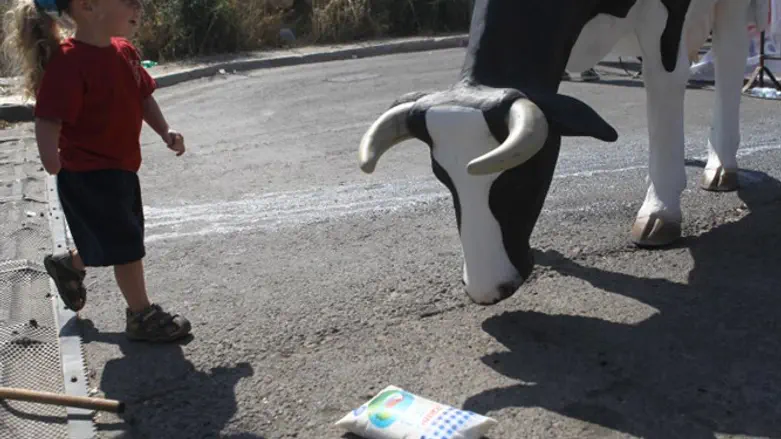
God: “And remember, Moshe, to keep kosher, never cook a kid goat in its mother’s milk.”
Moshe: “God, so are you are saying we should never eat milk and meat together?”
God: “No, what I’m saying is, never cook a kid goat in its mother’s milk.”
Moshe: “Oh Lord, forgive my ignorance! What you are really saying is we should wait six hours after eating meat to eat milk so the two are not in our stomachs?”
God: “No Moshe, listen! I am saying, don’t cook a kid in its mother’s milk!”
Moshe: “Oh, Lord! Please don’t strike me down for my questioning! Do you mean we should have a separate set of dishes each for milk and for meat, and if we make a mistake we have to bury that dish outside …”
God: “Fine! Just do whatever you want.”
This famous joke relates to two puzzles regarding the Pasuk "לא תבשל גדי בחלב אימו" - do not cook a kid in its mother's milk - which appears in this week's Parsha.
Firstly, why does the Pasuk appear, identically, three different times (Mishpatim, Ki Tisa & Re’eh)? And more importantly, how did we get from “not cooking a kid in its mother’s milk” to the elaborate Hilchot Basar VeChalav at the foundation of Hilchot Kashrut?
Rav Tzvi Yehuda Kook offered the following idea to understand this Mitzvah and its apparent importance:
The act of cooking a kid goat in its mother’s milk is cruel and sinister; the mother’s milk, intended to give sustenance and life to the kid is being used to kill it and turn it into food. How insensitive and even evil does one need to be to do such a thing?
Mixing meat and milk, explains Rav Tzvi Yehudah, holds a similar cruelty. We attain meat from an animal by killing it while we attain milk from an animal by preventing/relieving its pressure/pain. Though both products are attained by taking from an animal one is an act of cruelty while the other, an act of kindness.
The separation between meat and milk instill within us the sensitivity to distinguish between mercy and cruelty; that we should not confuse the two. We should not blur the fine line that many times exists between that which is positive, or even ideal and that which is negative, or just permissible.
Understood and followed correctly, Hilchot Basar VeChalav heighten our moral sensitivity furthering our moral and religious growth, as individuals and a collective.
As an important side note – this is but one example of how a Mitzvah can (and should) be understood in a way which makes it relevant to our – and our children’s – lives; relevant, empowering and, in my opinion, even inspirational.
May we succeed in looking for – and finding – the deepest meaning and relevance in Torah and Mitzvot.
Torah MiTzion strives to impact Jewish communities by creating Torah study centers, empowering youth leadership, and creating bonds to the State of Israel.
